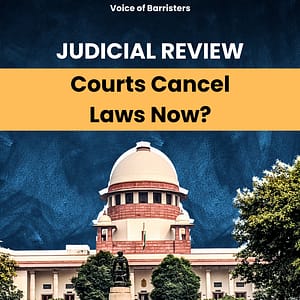LEGALITY OF E-CONTRACTS IN INDIA
4 min readWhat is an e-contract?
Electronic Contracts (e-contracts) are contracts that take place on an electronic platform through e-commerce. With time and the evolution of technology, the manner of execution of contracts has modified. E-contracts have been prevalent and recognized in India even before the pandemic. The Covid-19 irruption resulted in an exceedingly shift from traditional business practices to virtual business practices, making it easier and more efficient. E-contracts take place without the meeting of the parties to the contract and are accepted through means of electronic signatures or the other electronic mode.
The different forms of e-contracts are
1) Shrink Wrap Contracts: usually used for licensing agreements for software systems.
2) Click Wrap Contracts: These styles of contracts are seen before availing of any web-based service and include the user clicking a box indicating acceptance of the terms and conditions
3) Browse wrap Contracts: this type of contract binds the contracting party by continuing the utilization of the website.
4) Emails: Emails are legally binding by signing them with e-signatures.
Validity of E-contracts
The Indian Contract Act, 1872 does not specifically mention e-contracts however lays down the conditions and necessities of a valid contract. in line with Section 10 of the Indian Contract Act, 1872,”All agreements are contracts if they are made by the free consent of the parties competent to contract, for a lawful consideration and with a lawful object, and are not herewith expressly declared to be void.” thus, a contract could be a lawfully binding agreement once the conditions of
1) offer and acceptance,
2) Free Consent,
3) capability to enter a contract,
4) lawful consideration,
are satisfied.
E-contracts derive their validity from the Information Technology Act, 2000(IT Act, 2000). in line with Section 10A of the IT Act, 2000, “Where in a contract formation, the communication of proposals, the acceptance of proposals, the revocation of proposals and acceptances, as the case may be, are expressed in electronic form or by means of an electronic record, such contract shall not be unenforceable solely on the ground that such electronic form or means was used for that purpose.” In simple words, the preceding Section acknowledges the fundamental features of a contract like communication of proposals, acceptance of proposals, revocation of proposals and acceptances, all of that can be expressed in electronic form or through the means of an electronic record (according to Section 2t of the IT Act, 2000, ” Electronic record means data, record or data generated, image or sound stored, received or sent in an electronic form or micro film or computer generated micro fiche.”) this means that in spite of the lucidness or clarity of e-contracts, it’s just as valid as traditional written contracts. Therefore, all e-contracts abide by the necessities and pre-conditions of a valid contract creating it de jure enforceable.
Electronic Signatures
The IT Act, 2000 defines an electronic signature as “authentication of any electronic record by a subscriber by means of the electronic technique per the Second Schedule and include digital signature”. Electronic signatures are used to attest and authorize contracts. Electronic signatures are ruled under that Act,2000 and recognized 2 styles of e-signatures. They are:
1) Digital Signatures – an electronic style of a handwritten signature. they’re distinctive and can’t be reduplicated.
2) Electronic signatures or electronic authentication methods specified in Second Schedule of IT Act,2000 – The mentioned methods of authentication are a) One-time password (OTP) and biometric-based mostly Aadhaar e-KYC (Know Your Customer) method; b) e-KYC services used for Aadhaar Card, Organisations and Banks; c) Techniques and procedures used for issuing Digital Signature Certificates.
Admissibility of E-Contracts as evidence by Courts
The courts in India have additionally recognized electronic contracts with reference to the provisions of various legislatures. Electronic agreements under Section 65-A of the Indian Evidence Act, 1872are therefore recognized by the Courts pan India. The procedure for producing electronic agreements as evidence in a Court of law is enshrined underneath Section 65B of the Indian Evidence Act, 1872. Under the Indian Evidence Act, 1872, an e-agreement has the same legal effect as a traditional paper-based agreement. The definition of “evidence” as provided underneath Section 3 of the Indian Evidence Act includes “all documents including electronic records produced for the inspection of the court.” The Indian Evidence Act, of 1872, therefore, needs a court of law to presume that the contract has not been altered since the digital signature is attached by one of the parties and the digital signature was attached with the intention of approving it.
Conclusion
It can safely be concluded that in an E-contract signed through electronic means, the parties are at consensus-id-idem if such a contract fulfils all the pre-requisites of a valid contract which make it valid and legally enforceable. Digital Contracts or E-contracts have thus created their way through e-commerce and became a major trend ever since. They are not just simply popular, prevailing, and convenient however also time and efficient.
Citations
- Indian Contract Act, 1872 https://legislative.gov.in/sites/default/files/A1872-09.pdf
- Information Technology Act, 2000 https://www.indiacode.nic.in/bitstream/123456789/13116/1/it_act_2000_updated.pdf
- Indian Evidence Act, 1872 https://legislative.gov.in/sites/default/files/A1872-01.pdf




